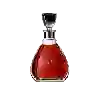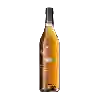
Domaine MadelocBanyuls Robert Pages
This wine generally goes well with beef and mature and hard cheese.
Wine flavors and olphactive analysis
On the nose the Banyuls Robert Pages of Domaine Madeloc in the region of Languedoc-Roussillon often reveals types of flavors of cherry, leather or black fruits and sometimes also flavors of black currant, chocolate or cinnamon.
Food and wine pairings with Banyuls Robert Pages
Pairings that work perfectly with Banyuls Robert Pages
Original food and wine pairings with Banyuls Robert Pages
The Banyuls Robert Pages of Domaine Madeloc matches generally quite well with dishes of beef or mature and hard cheese such as recipes of beef in white wine or pasta with lemon and comté cheese.
Details and technical informations about Domaine Madeloc's Banyuls Robert Pages.
Discover the grape variety: Montils
Montils blanc is a grape variety that originated in France (Charente). It produces a variety of grape specially used for wine making. It is rare to find this grape to eat on our tables. It should be noted that this grape variety can also be used for the elaboration of eaux de vie. This variety of vine is characterized by bunches of medium size, and grapes of medium size. Montils blanc can be found in several vineyards: South-West, Cognac, Bordeaux, Loire Valley, Provence & Corsica, Rhone Valley, Savoie & Bugey, Beaujolais.
Last vintages of this wine
The best vintages of Banyuls Robert Pages from Domaine Madeloc are 2013, 2009, 2007, 2015 and 2012.
Informations about the Domaine Madeloc
The Domaine Madeloc is one of of the world's greatest estates. It offers 16 wines for sale in the of Banyuls to come and discover on site or to buy online.
The wine region of Banyuls
Banyuls wines come from the South-eastern Part of Roussillon, in the south of France, in the lower Pyrenees, a few kilometres from the Spanish border. These naturally Sweet wines are consumed both as an aperitif and as a dessert. They come in a wide range of hues, from GoldenGreen (Banyuls Blanc) to Amber (Banyuls Ambré) to the intense garnet of the standard Banyuls Rouge. Unusually among the natural sweet wines of France, all Banyuls wines are made primarily from Grenache grapes of various colors.
The wine region of Languedoc-Roussillon
Languedoc (formerly Coteaux du Languedoc) is a key appellation used in the Languedoc-Roussillon wine region of southern France. It covers Dry table wines of all three colors (red, white and rosé) from the entire region, but leaves Sweet and Sparkling wines to other more specialized appellations. About 75% of all Languedoc wines are red, with the remaining 25% split roughly down the middle between whites and rosés. The appellation covers most of the Languedoc region and almost a third of all the vineyards in France.
The word of the wine: Frank
Said of a wine that is open and delivers itself immediately, and whose clarity excludes any defect.














